“No one told me what they’ll do with my eye…I did this out of need.”
Olga de León, Buenos Aires Resident, to Rest of World
Want $50 worth of cryptocurrency? Scan your irises with one of Worldcoin’s orbs and it’s yours. Such is Worldcoin’s (rather odd) elevator pitch to the public, which has subsequently rolled out its iris-scanning orbs to 38 countries worldwide.

Launched in mid-2023 and described by founder Sam Altman upon launch as “a global financial and identity network based on proof of personhood,” Worldcoin has made a big splash in its efforts to grow an identity and finance network using the unique, orb-based iris scans of every individual on Earth.
Some are excited by the project, many fear it. Debatable optics of using an orb (often stylized in Worldcoin’s communications as “the Orb”) as a project centerpiece aside, Worldcoin’s orb-based iris scans have been suspended in several countries, including Spain, Kenya, and Portugal due to mounting privacy concerns and the organization’s sketchy business practices. But, as Rest of World reports, the scans have recently become popular in Argentina, where pervasive economic crises and record inflation rates have made many hungry for instant cash: in January 2024, Worldcoin boasted it had scanned the irises of about one percent of Argentines.
Amongst the tech world’s most ambitious projects today, Worldcoin is positioning itself as a one-stop shop for identity, finance, and Universal Basic Income (UBI) infrastructure that is poised to undermine, if not subvert, traditional financial systems and governance structures internationally — all in response to problems attributed to the growth of the AI industry, which is arguably led by Altman’s own OpenAI.
Altman’s Solution to Altman’s Problem
Founded by OpenAI’s Sam Altman in 2019 and operating as a “stealth” project until Bloomberg reporting broke its cover in 2021, Worldcoin’s website describes its operations as profound for society, yet inclusion-forward:
Worldcoin is designed to become the world’s largest privacy-preserving human identity and financial network, giving ownership to everyone. Worldcoin aims to provide universal access to the global economy no matter your country or background, establishing a place for all of us to benefit in the age of AI.
If the language in the above paragraph seems fluffy or mealy-mouthed, that’s because it obfuscates Worldcoin’s more bizarre premise, which is to single-handedly address a set of wide-reaching problems that Altman and Co. suggest will shape the world in light of AI’s advance. These include:
- Artificial Intelligence will inevitably become smarter than mankind as a whole. The development of AI, according to Sam Altman, will ultimately displace many from the workforce while simultaneously upping productivity (some economists are skeptical of this claim), and therefore wealth, in ways never before seen.
- As AI becomes harder to differentiate from human activity, Worldcoin biometric infrastructure could help people prove their humanity online through what Worldcoin describes as “proof of personhood” and access myriad services.
- The wealth generated by AI/AGI could eventually be distributed to everyone on earth, equally, via an AI-funded Universal Basic Income (UBI). According to Altman, the world of AI is a “more materially abundant world,” but “we’re going to need some sort of cushion [UBI] through the transition” to it.
- Worldcoin infrastructure can facilitate said UBI distribution, where everyone must be identified as individual humans through Worldcoin’s Orb (to ensure everyone has an “equal” share of UBI), and everyone receives their UBI in the form of Worldcoin.
Altogether, Worldcoin positions itself as infrastructure that can (eventually) facilitate a society-wide transition to AI-powered UBI in light of AI’s predicted impact on the international economy, while also connecting the realms of digital finance and identity.
For context, Universal Basic Income (UBI) would give the general public regular salaries to pay for living basics, such as rent and utilities. On one hand, UBI could boost living standards and reduce poverty if provided truly unconditionally. Indeed, elite-gilded groups like the World Economic Forum have touted UBI as a possible solution to employment and inequality issues exacerbated by the ongoing Fourth Industrial Revolution, an ongoing, elite-backed technological revolution that blurs the physical, digital, and biological spheres. Critics worry, however, that abusive governments or issuing entities could make UBI conditional according to an individual’s behavioral choices, or otherwise make the UBI-receiving population overly dependent on the issuing source. In this case, Worldcoin issuing UBI could give it immense power as a certain percentage of the international population could become dependent on such UBI for its survival.
Notably, Worldcoin’s language surrounding UBI appears inconsistent. Within more conventional contexts and materials, the organization appears to minimize the importance of UBI as a Worldcoin end goal, instead describing itself as an “identity and financial network.” Still, UBI is currently described as an eventual goal in the Worldcoin whitepaper; Worldcoin also received significant press about its AI-powered UBI aspirations following its summer 2023 launch. What’s more, the Ribbon protocol, which is “developing an innovative model that intertwines Universal Basic Income with Universal Health Coverage, utilizing World ID users’ health and socioeconomic data to enhance global well-being,” has received a grant from Worldcoin, suggesting UBI is still a priority for the organization.
If successful, Worldcoin’s impact as a project is difficult to understate. Namely, Worldcoin could supersede modern governance structures by creating and imposing digital identity infrastructure, its cryptocurrency, and the policy of UBI on the world, thus uniting the realms of digital, finance and identity under one roof — its roof. The propensity for such governance is referenced in Worldcoin’s white paper, which states that Worldcoin infrastructure could “provide the foundation for shared governance of (sic) for universal basic income.”
As per August 2023 reporting in Forbes, Mr. Altman even described Worldcoin as a kind of replacement for now-floundering governments to his employees:
Our central institutions, most powerful governments, were either going to continue to get less powerful or continue to get worse. I thought that it would be interesting to see what [it would look like to] run an experiment of just how far a technology could accomplish some of the goals that used to be done by nation-states.
Apparently, adopting critical societal responsibilities traditionally given to nation states is merely an “interesting” endeavor to Altman, as opposed to a bid for power. In contrast, Worldcoin insists its infrastructure and prosperity would be “shared” by all, with its FAQ page stating that Worldcoin “is intended to become a public network, with ownership by everyone.”
To support these claims, Worldcoin says its work will soon become completely “open source,” which means that Worldcoin’s source codes will become accessible to the public, and that the organization’s infrastructure will become “decentralized” over time, which means that maintenance, governance and decision making over the protocol’s direction will be distributed fairly amongst its users.
But “decentralized” is a difficult claim for a cryptocurrency protocol to back up, especially for one that is still functionally being managed by Worldcoin’s leadership and the organization’s parent organization, Tools for Humanity. A common complaint about cryptocurrencies is that they are “decentralized in name only,” where further scrutiny of a “decentralized” cryptocurrency protocol may reveal it’s managed in more centralized ways, potentially compromising the protocol’s ability to remain politically neutral.
Worldcoin’s reliance on Ethereum, for example, raises questions due to concerns about Ethereum’s centralization in recent years. For context, as I had highlighted in previous Unlimited Hangout reporting:
Ethereum’s “proof of work” to “proof of stake” blockchain verification system switch, or “merge” in 2022, centralized the protocol’s technology. Whereas decentralized computing “work” validates the cryptocurrency network in “proof of work,” “proof of stake” shifts this validation responsibility over to stakeholders, granting them tangible leverage over the network….Indeed, a small number of stakeholders appear to be swallowing up significant stakes in Ethereum: even before the merge, crypto exchanges Coinbase, Kraken and Binance had together accounted for over 20% of the total staked ETH. At the time of writing, moreover, liquid staking solution Lido Finance holds roughly ⅓ of the total stake. Meanwhile, multinational investment giant Blackrock’s recent filing to launch an Ethereum-backed Exchange Traded Fund (ETF), only shows that the world’s most powerful players are moving to use the protocol for their ends.
Despite Ethereum’s growing centralization problems and apparent elite capture, Worldcoin uncritically portrays the Ethereum protocol as one up to the task of facilitating critical Worldcoin infrastructure.
Meanwhile, other crypto developers have questions about Worldcoin’s unbalanced, investor-favored tokenomics, with developer Hudson Jameson asking on X: “Worldcoin’s tokenomics are also suspicious since only 80% of the coins are going to the public, with 10% going to investors and 10% to the team. How is that going to create a fair worldwide currency?”
At best, the Worldcoin project proposes clumsy, weird solutions to problems that Altman’s other work perpetuates. At worst, the effort, functionally a bid to transform both economic governance and facilitate critical societal infrastructure internationally, is a blatant power grab facilitated by some of the most influential people in the tech industry. As Forbes bluntly put matters, Worldcoin’s “Altman has played a central role in sparking the current AI gold rush [through OpenAI], which has significantly worsened the very problem Worldcoin proposes to solve.”
A Crypto-Based Control Grid?
The Worldcoin concept is weird; its operations have dangerous ramifications.
Worldcoin describes itself as an “identity and financial network” on its website, and even positions itself as the “largest identity and financial public utility” in Google search results (emphasis mine). In this respect, a key part of Worldcoin’s infrastructure is its digital identity network, called World ID. As per the Worldcoin whitepaper, “World ID could become a global proof of personhood standard” if successful, and Worldcoin’s community has suggested that World ID could be used to validate one’s identity for activities like voting.
But critically, key societal issues regarding privacy and freedom arise with the implementation of Digital ID systems like World ID. As I noted in previous Unlimited Hangout reporting, “a 2018 WEF report on Digital ID even admits the tool’s propensity for exclusion, positing that ‘[f]or individuals, [verifiable IDs] open up (or close off) the digital world, with its jobs, political activities, education, financial services, healthcare and more.’” (Emphasis my own.) Other concerns include the possible weaponization of Digital IDs to facilitate a “papers please” checkpoint style-society, or otherwise to discriminate against already marginalized populations. In the case of Worldcoin, further, the organization’s infrastructure appears to run entirely online, apparently leaving those without mobile phones or inconsistent internet access out to dry.
What’s more, Worldcoin’s digital linkage of finance and identity is eyebrow-raising within the context of Digital IDs functionally acting as a prerequisite to Central Bank Digital Currencies (CBDCs), which are a central bank-issued digital and programmable version of fiat currency.
As discussed in other Unlimited Hangout reporting:
“While CBDC proponents tout them as fast, convenient, and ideal for cheaper international transactions, Unlimited Hangout has previously elaborated on CBDCs’ propensity to undermine anonymity, foster surveillance and even, in terms of programmability, be used to enforce policies or otherwise be weaponized to manipulate or control peoples’ financial activities and behavior. If rolled out on a wider scale and introduced in tandem with other tools, like Digital IDs, UH contributor Iain Davis and UH contributing editor Whitney Webb (among others) have posited that CBDCs could ‘be used to monitor our whereabouts, limit our freedom of movement and control our access to money, goods and services.’”
Many theorize that CBDCs (and private sector-facilitated “synthetic CBDCs,” like stablecoins) will be tied to Digital ID because a system that properly and consistently identifies individuals serves as a critical “foundation” for digital currency. As payment expert Michael Salmony wrote in the Spring 2023 issue of the Journal of Payment Systems and Strategy, “the problem of how to identify people efficiently and reliably will need to be solved before any CBDC can realistically be considered.”
If implemented, CBDCs pose existential threats to civil liberties and personal privacy — even Sam Altman has said he’s “super against” them, saying on the Joe Rogan podcast in late 2023 that “this idea that we have a global currency that is outside of the control of any government is a super logical and important step on the tech tree.”
But depending on its capabilities and roll-out, Worldcoin’s widespread use could pose similar dangers to the public in the realms of surveillance and programmability. Indeed, Worldcoin uses smart contracts, digital infrastructure key to currency programmability. Smart contracts automatically execute a task or function once a given set of criteria, or, the “contract,” has been fulfilled. A simple example often given to explain smart contracts is that of a vending machine, where a drink is dispensed once money is inserted into the machine.
Further, just as Digital ID is functionally a CBDC prerequisite and key to digital financial infrastructure, Worldcoin’s Digital ID, called WorldID, appears to be the cornerstone of Worldcoin infrastructure, acting as a kind of “prerequisite” to accessing the myriad services Worldcoin provides. Namely, WorldID, with an update called WorldID 2.0 rolling out later in 2024, can be used on Worldcoin’s WorldApp, which allows people to accept Worldcoin grants, send or receive money (in the form of WLD), or verify their “humanness” to access a variety of apps already frequently used amongst the general public.
When Worldcoin’s Layer 2, a blockchain-based network called World Chain launches over summer, Worldcoin says that WorldID will help users to differentiate themselves from increasingly lifelike bots. This way, they claim, a person can verify themselves as human to use services and apps, and they will still be anonymous to Worldcoin, providing a pathway for World Chain to therefore prioritize access and use of apps by those who have verified themselves as humans via WorldID. Altogether, as previously highlighted, WorldID apparently could be used to access other services or otherwise participate in daily life if successful.
Worldcoin also recently announced that a secure multi-party computation (SMPC) system will replace its old iris recognition inference system, meaning that iris codes scanned will now be “individually encrypted into multiple different secret shares held by multiple parties,” where results can be computed regarding the “secret” information without learning the secret information itself. Proud of its privacy-related achievements, Worldcoin’s adopted the SMPC system and deleted the old iris codes.
But even if Worldcoin takes genuine strides towards maintaining the privacy of users, privacy solutions like World Chain, if widely implemented, could still ultimately pressure people to “buy in” to Worldcoin infrastructure to continue using services they once needed no such verifications for.
Further, Worldcoin’s track record in the privacy realm is lackluster. As per MIT Technology Review’s reporting from 2022: “[There are] gaps between Worldcoin’s public messaging, which focused on protecting privacy, and what users experienced. [They] found that the company’s representatives used deceptive marketing practices, collected more personal data than it acknowledged, and failed to obtain meaningful informed consent.” In this respect, concerns have also proliferated as to whether backdoors in the Orb’s hardware could allow one to inappropriately access private data. On this front, 2023 reporting by Decrypt revealed that people successfully bypassed Worldcoin protocols to become Orb operators due to a bug in the system, raising questions as to what else could also be bypassed. (Though, if the orb becomes fully “open source” as Worldcoin proposes, at least possible backdoors could be scrutinized by the public).
On a practical level, Worldcoin is functionally asking the international community to adopt its cryptocurrency Worldcoin (WLD) as key financial infrastructure despite substandard proof of its long-term viability. As per the company’s own website, the Worldcoin protocol is “experimental,” and, if it fails and the project ceases, “it is possible that owners of WLD may no longer be able to utilize their tokens or realize any value from WLD they purchased or hold.”
Although Worldcoin is not a CBDC, it seems that its cryptocurrency, Worldcoin (WLD), could function like one if widely implemented, except that the currency would be issued by Worldcoin, an unpredictable and unproven crypto protocol, instead of a central bank. At best, Worldcoin is asking the public for near-unilateral trust in and uptake of services that could be weaponized in the wrong hands.
Whether Worldcoin and the people behind it should be entrusted with such critical societal infrastructure demands public debate. And yet, as we shall see, Worldcoin seems instead interested in spreading its infrastructure as quickly as possible, often without even ensuring those who scan their irises or otherwise use Worldcoin services are properly informed about the organization and its goals.
A Track Record of Exploitation, Shady Dealings
Worldcoin’s track record could be summarized as a string of privacy violations in the Global South and beyond. Indeed, Worldcoin’s reputation continues to smart from aforementioned 2022 MIT Technology Review reporting that found many participants in the project’s test operations in Chile, Kenya, Indonesia, Sudan and France felt they weren’t able to provide meaningful consent for their biometrics or were otherwise given little information about the project. Few were told that they were participating in test operations whatsoever, or that, since some test operations were conducted before Worldcoin’s launch, the WLD tokens given to many effectively had no real value at the time.
As Markets Insider reported, an anonymous user wrote to an orb operator that “It’s now more than 3 months, what did you do with our eyes?…This was all a lie this worldcoin is the same as other scams. Prove me wrong if I am talking lies.”
Worldcoin orb operators, moreover, have faced harassment, poor or unclear communications from Worldcoin, and even a “changing wage structure that they say makes the work financially unfeasible” according to Buzzfeed News. Worldcoin apparently skirted regulations in places like Zimbabwe, even leading to the detainment of orb operators due to concerns they were violating Zimbabwe’s crypto-related laws, where Zimbabwean banks cannot process crypto transactions. A test operator in Kenya even said he hadn’t even received basic information about Worldcoin, only that he should “bring more people in to get [himself] more money.”
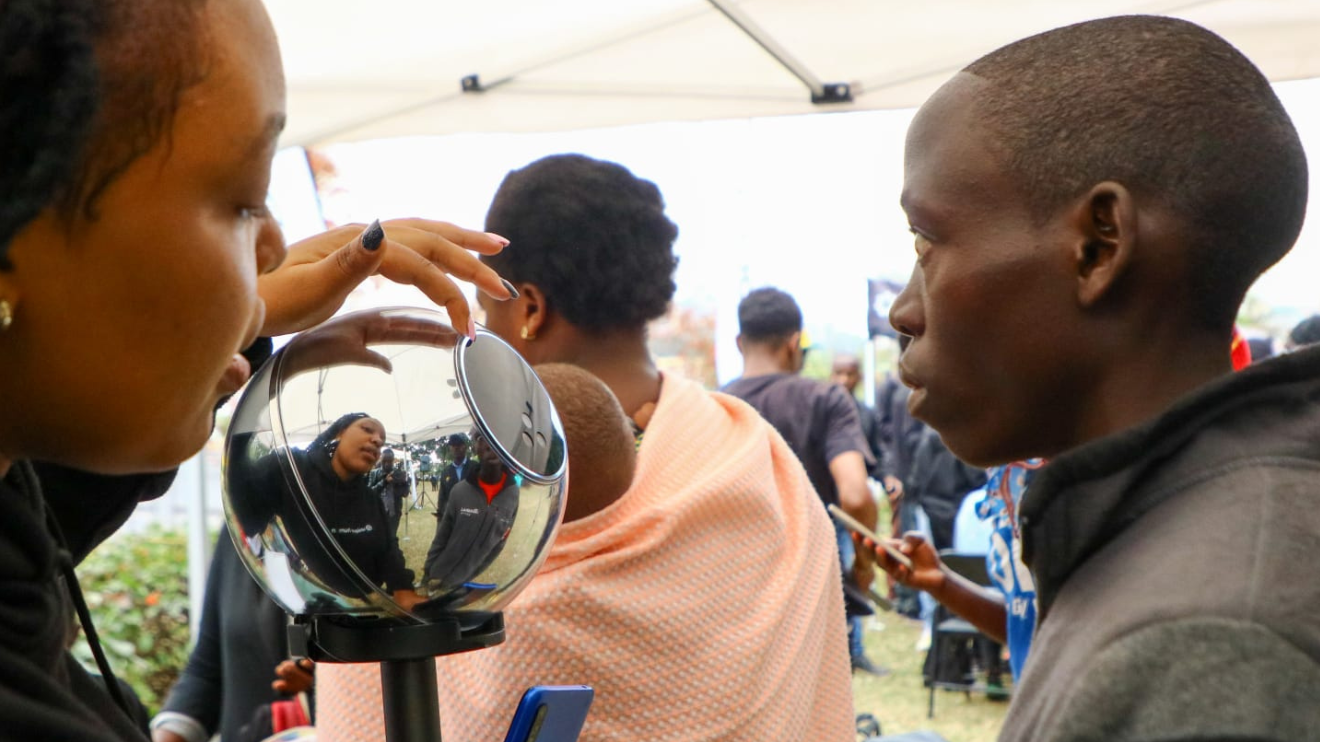
In Kenya, over 350,000 people had signed up for Worldcoin. For many, the deal was squarely about the money: one Kenyan reportedly said, “today my family will have a decent meal and I will be able to pay part of the debt I have on my rent” thanks to the iris scan crypto payment.
The Kenyan government was less than friendly to ongoing shenanigans — Kenyan Data Commissioner Immaculate Kassait claimed Worldcoin parent company Tools for Humanity “did not disclose its true intentions during registration.” Voicing concerns about data collection, privacy, and the idea of exchanging biometrics for money altogether, Kenya’s Communications Authority suspended Worldcoin in August 2023. However, just last week, Kenya abruptly dropped its probe of Worldcoin, leading to speculation that Worldcoin may attempt a relaunch in the country.
However, Worldcoin is under investigation in several other countries and some, including Spain and Portugal, have temporarily or completely suspended Worldcoin’s operations. Furthermore, Orb verification scans have been paused in India, France, and Brazil despite only beginning months earlier. According to a public statement, the scans in the countries were a limited time offer; the move seems odd within the context of the organization’s hopes for rapid growth, and apparently can be attributed to ongoing regulatory struggles between Worldcoin and governments.
Perhaps anticipating the organization’s chronically bad press, Sam Altman explained in 2021 that he has little oversight over Worldcoin’s daily operations, simply acting as an adviser. But reporting in CoinTelegraph suggests he’s worked behind the scenes to ensure WorldCoin’s handpicked CEO, Alex Blania, has the tools to succeed despite little work experience:
Blania is a tall, athletic, baby-faced 29-year-old wearing jeans and a t-shirt. He’s an unlikely CEO. He leads one of the most ambitious projects on the planet, but this happens to be his very first job. Altman tapped him to be CEO and co-founder after his stint at CalTech, where he researched neural networks and theoretical physics. Blania admits that in the beginning, “other than technical depth, I think I was a bad CEO.”
So Altman gave him help. “Sam basically gave me a couple of people that I met with every week,” he says. “They basically told me, every week, the ways in which I was doing a bad job.” One of these CEO coaches was Matt Mochary, who had previously coached both Altman and Brian Armstrong. They tutored him on the managerial basics like how to conduct one-on-ones, how to run staff meetings and how to handle public speaking.
Despite constant CEO coaching, Blania’s interviews are less than convincing: a soft-spoken Blania meekly admitted he wasn’t “surprised” by backlash to Worldcoin in a recent CNBC interview, and even that he found the iris scans “scary” at first. He said the iris scans were Altman’s idea in the interview which, as one YouYube commenter highlighted, appeared more like a Worldcoin infomercial.
Worldcoin’s Alex Blania admits he’s not surprised that aspects of the Worldcoin project, which he was skeptical of at first, have received backlash.
Who is Sam Altman?
Ultimately, Sam Altman’s sketchy practices as a tech executive, as well as his long-term interests in both AI and UBI, deserve scrutiny.
There is the case of Altman’s OpenAI firing, where Altman was outmaneuvered by a board who felt he was deceptive, dishonest, and even abusive, which was famously rescinded after about 95 percent of OpenAI employees teamed up to write a letter saying they would quit if Altman wasn’t reinstated. Former OpenAI board member Helen Toner even said that ChatGPT was released without OpenAI’s board even being told first; “we learned about ChatGPT on twitter.”
While the Washington Post reported back in November 2023 that Altman was also fired by Y Combinator founder Paul Graham in 2019 for putting his own interests before the company’s, Graham recently said on X that no such firing took place, instead claiming Altman was asked to choose between Y Combinator or OpenAI.
Likewise, the Washington Post’s Elizabeth Dwoskin and Nitasha Tiku highlighted Altman’s tendency to invest in startups he found through running prestigious start-up accelerator Y Combinator “— a kind of double-dipping for personal enrichment that was practiced by other founders and later limited by the organization.” Indeed, Altman has backed over 100 startups, likely fostering both unprecedented loyalty and influence over such groups. As recently reported in the Wall Street Journal, namely, many of these Altman-backed companies do extensive business with OpenAI, further contributing to his wealth because he’s on “both sides of the deals.”
Unsurprisingly, Sam Altman has high friends in high places, recently joining up with Blania and other Worldcoin staff in a meeting with Argentina’s president, Javier Milei, to discuss “the advancement of artificial intelligence, how to prepare humanity for AI and its potential investments in Argentina.” Altman and Blania also virtually met with Malaysian Prime Minister, Anwar Ibrahim, and staff about the Worldcoin project.
A member of the World Economic Forum’s Global AI Council, which focuses on the growing realm of AI governance, Altman has also attended the secretive, off-the-record Bilderberg meeting in 2023 to speak about AI. Altman had been invited to Bilderberg previously, attending back in 2016 while at Y Combinator, suggesting a long-term relationship with the elite group (OpenAI was in its infancy at the time).
Altman also has a close relationship to controversial venture capitalist, Bilderberg Steering Committee Member, and PayPal founder Peter Thiel who, as I described in previous Unlimited Hangout reporting, is behind the rise of many prominent tech companies and adjacent organizations “whose work, often co-developed or otherwise advanced by governments and the intelligence community, includes bolstering the State’s mass surveillance and data-collection and -synthesis capacities despite his professed libertarian political beliefs.”
A long-term Y Combinator partner (though Y Combinator quietly cut ties with Thiel in 2017 after an extended period of Altman defending the relationship), Peter Thiel is frequently referenced as one of Altman’s mentors and collaborators. A source told The Washington Post that “[i]t’s not just a friendship, like going around playing golf…It’s something much deeper than that. Sam has to be one of the two or three people closest to Peter.” Notably, Thiel was also one of the first funders of Vitalik Buterin’s Ethereum protocol, which Worldcoin relies on, via a 2014 Thiel Fellowship.
Altman has also long been interested in the concept of UBI, previously initiating his own studies via Y Combinator and previously writing in 2021 that, by 2031, he estimated that AI could generate $13,500 every year for each adult American. Altman may genuinely be interested in UBI’s propensity to lift others from poverty; yet he neglects to mention that AI-generated UBI via Worldcoin could make people dangerously dependent on the very infrastructure he helped create.
Meanwhile, Altman’s ideas about how AI could transform society have only become more audacious, suggesting recently that “universal basic compute” (i.e. owning a part of Open AI’s own AGI productivity, “everybody gets a slice of GPT-7’s compute”) could replace UBI, and therefore perhaps even the concept of money itself. Such claims suggest Altman thinks his tech will or should be at the very center of the economy, if not everything: as journalist Derek Robertson writes for Politico, Altman’s “rhetorical flourish about UBI is a neat bit of sleight-of-hand by a master marketer — one that puts his latest product at the center of not just the economic universe, but the entire human experience.”
Along similar lines, Altman wrote in a 2021 blog post “[t]o the three great technological revolutions–the agricultural, the industrial, and the computational–we will add a fourth: the AI revolution.”
Overzealous Memecoin or Power Grab?
Altogether, Worldcoin has positioned itself as multi-faceted digital infrastructure for finance, UBI, and proof of personhood that is intended to eventually encompass all of humanity. While Worldcoin emphasizes its inclusivity, privacy, and the decentralized nature of its protocol in its public materials, the organization’s track record of privacy violations and poor communication, when coupled with Sam Altman’s megalomaniac beliefs about how his AI-backed technologies will transform society, instead suggest that a power grab for critical societal infrastructure is afoot.
An ambitious project, Worldcoin may well go belly up, especially within the context of its suspension in a number of countries. Most recently, the special administrative region of Hong Kong gave Worldcoin the boot, ordering the company to cease iris scans because “the face and iris images collected by the Worldcoin project were unnecessary and excessive.” WLD dropped 5 percent in response.
While Worldcoin claims to have completed about 5,500,000 iris scans at the time of writing (the number falls significantly behind Blania’s hopes of having over a billion sign-ups by now), it seems many people have scanned their irises simply to receive their instant cash and bounce, rarely or never again interacting with the project infrastructure. Perhaps Worldcoin’s bottom line is best summed up by David Morris at Coindesk: “It is extremely difficult to imagine how what amounts to an Ethereum-based meme coin with no apparent tokenomic model is going to be exchangeable for essentials like food and shelter over the long term.”
Yet, other developments are in Worldcoin’s favor. Stephen Graves reported back in February for Emerge that Worldcoin had surged 40% since OpenAI launched Sora (an OpenAI program that can create videos from text). Graves observed that “although Worldcoin is entirely unrelated to OpenAI, crypto investors appear to want exposure to Sam Altman’s success through WLD.” Meanwhile, Worldcoin’s parent project “Tools for Humanity” is seeking partnerships with Altman’s OpenAI and other tech giants, such as PayPal. Worldcoin itself recently scored a partnership with major web3 developer platform Alchemy to provide infrastructure for the new World Chain, where Alchemy will also integrate WorldID into its tool set and “promote its growth as internet infrastructure.” Having amassed over $240 million from myriad investors through multiple high profile funding rounds, further, Worldcoin has even faced an orb shortage due to their rapid rollout across the globe.
At the very least, Worldcoin has gas in the tank. Flop or succeed, Worldcoin’s launch and sheer ambition suggest that if elite-gilded public sector initiatives like CBDCs do not proceed, it seems all the more likely that Worldcoin or an adjacent private sector-led digital finance project could take its place. The possible end result, the formation of economic and social governance structures the population has little control over, is the same.
Featured Image – A deconstructured Worldcoin orb (Source)







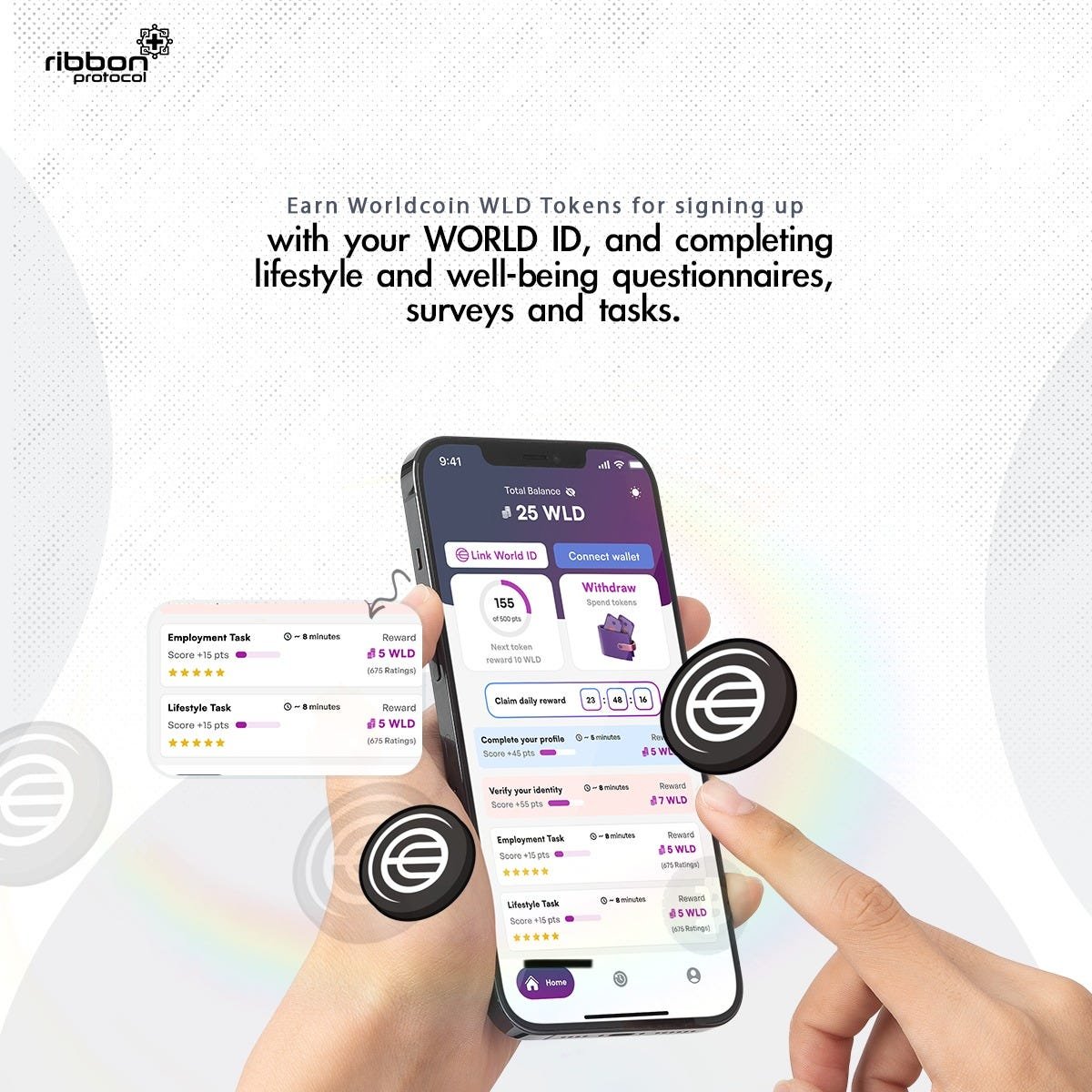
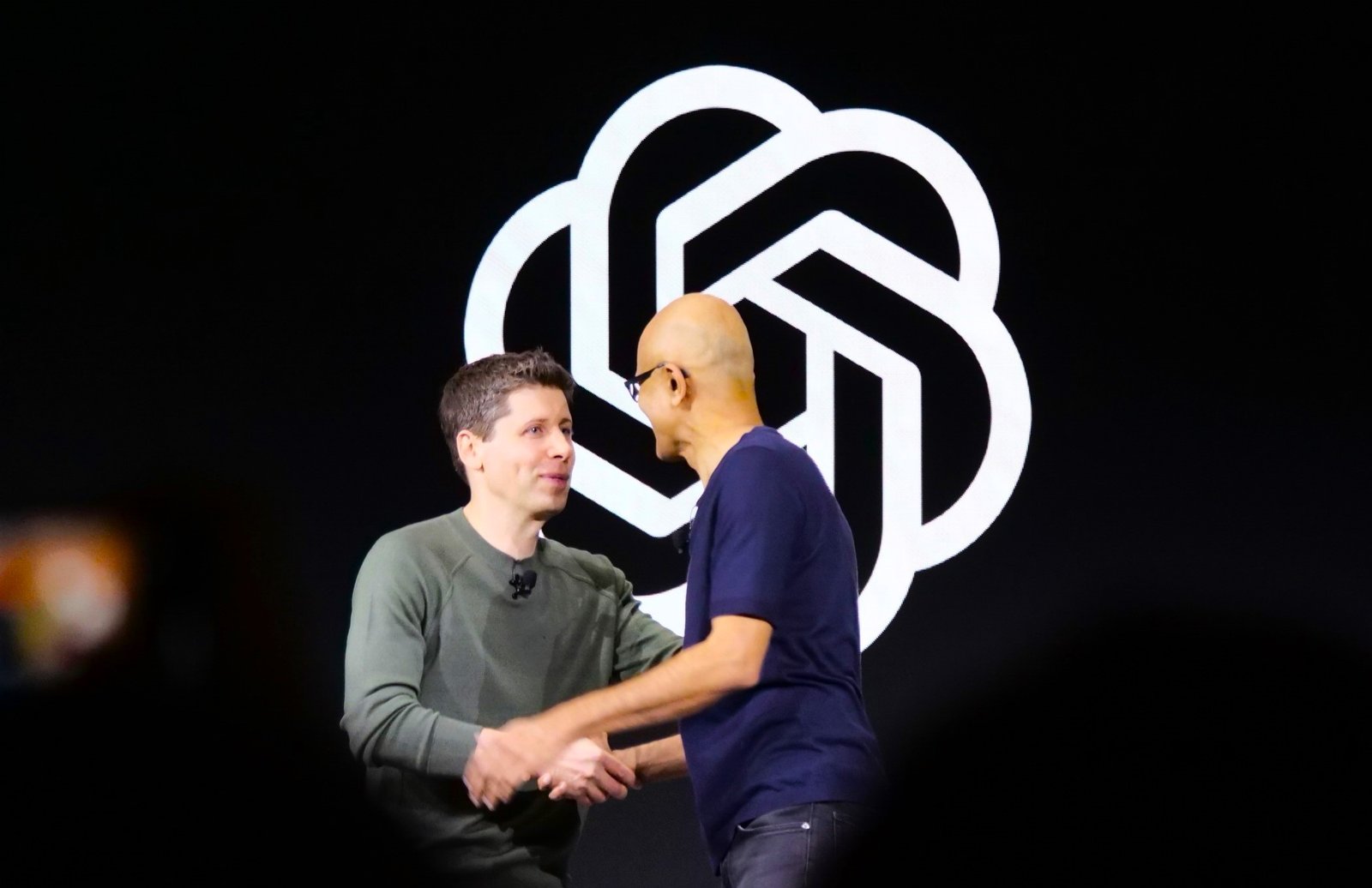

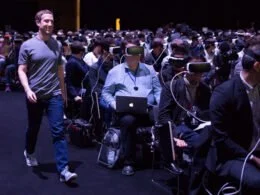

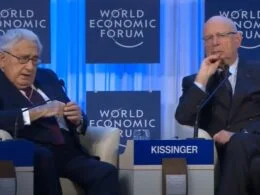
Hello. I thought you might want to watch this piece on Canada.
Blackmail in Canada ? https://rumble.com/v53xmho-see-how-every-aspect-of-canada-is-being-funded-by-big-pharma-with-christine.html
Excellent update on what is stirring from the hells as Sam the Psycho guns for everyone’s ‘identity’, ultimately enabling a more rapid Kill Chain.
unnecessary and potentially dangerous
WEF, WHO, AIUBI, etc., etc….this is all very interesting but most of the articles on this site overlook one basic element to all these machinations: How to enforce it all? Global goon squads. Eventually the number of people who are for all these deranged populace control agendas will decrease as the number of people against them will increase. Making the 1% the .1%. This is a exercise in attrition and those always turn out the same.
IMO Worldcoin’s Orb is a pretty fascinating piece of tech. I believe it’s this tech more than their currency that’s going to help shape the future of crypto & ID verification. I was reading more about their engineering process (ref: https://worldcoin.org/blog/engineering/opening-orb-look-inside-worldcoin-biometric-imaging-device) to understand how privacy & accuracy are maintained on the blockchain, and I think the proof of personhood (ref: https://worldcoin.org/blog/worldcoin/benefits-proof-personhood-numbers) angle is quite interesting in a world increasingly influenced by AI. Thoughts from other readers?